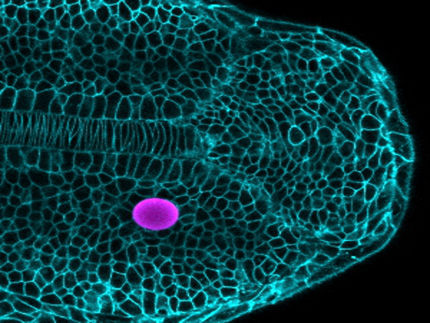Horizon Discovery and Fox Chase Cancer Center announce collaboration to apply rAAV gene targeting in mouse embryonic stem cells and research into EGFR-therapy resistance.
Collaboration will establish a new Center Of Excellence in Mammalian Gene Editing
Horizon Discovery has announced that it has entered into a three-year collaboration with the Fox Chase Cancer Center (Fox Chase). The focus of the collaboration is to apply rAAV gene targeting in mouse embryonic stem (ES) cells, and for the discovery of genes involved in resistance to EGFR-targeted therapies in human cancer, such as PI3K.
The collaboration will generate new human isogenic disease models and mouse knock-out models that will be exclusively licensed by Fox Chase to Horizon in return for future product royalties. Horizon will also have an exclusive option to license new intellectual property developed during the term of the collaboration. This forms part of Horizon’s strategy to generate at least 2500 new X-MANTM (gene X- Mutant And Normal) models of cancer, neurodegenerative, and cardiovascular disease. These models will support drug discovery researchers in their effort to understand how complex genetic diseases manifest themselves in real patients and help rationalize many aspects of drug development, reducing the cost of bringing to market new personalized therapies.
As part of the collaboration, Horizon and Fox Chase will establish a Center of Excellence in gene editing that will advance the application of rAAV gene-editing in functional genomics and translational medicine within in vivo mouse models, further extending the range of applications and models within the GENESIS Gene Editing Consortium. In December 2010, Horizon announced that it plans to commit resources to provide training and open access to its proprietary gene-editing platform to another 50 academic and not-for-profit research groups over the next five years.
Dr Rob Howes, Principal Scientist and Center of Excellence Program Manager at Horizon, said: “EGFR-targeted therapies, such as Erbitux and Vectibix, have been very effective in treating human cancers but there is a set of patients which are resistant to these treatments. Our collaboration with Fox Chase will identify genes which are involved in this resistance mechanism and provide novel targets for cancer treatment. The ability of rAAV to edit the genome of human cells is now routine. Establishing the rAAV Center of Excellence at Fox Chase will enable us to extend the applicability of rAAV to mouse gene targeting.”
Other news from the department science

Get the life science industry in your inbox
By submitting this form you agree that LUMITOS AG will send you the newsletter(s) selected above by email. Your data will not be passed on to third parties. Your data will be stored and processed in accordance with our data protection regulations. LUMITOS may contact you by email for the purpose of advertising or market and opinion surveys. You can revoke your consent at any time without giving reasons to LUMITOS AG, Ernst-Augustin-Str. 2, 12489 Berlin, Germany or by e-mail at revoke@lumitos.com with effect for the future. In addition, each email contains a link to unsubscribe from the corresponding newsletter.

















































